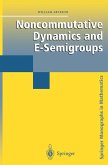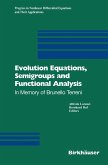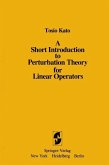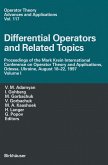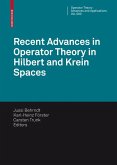The book gives a streamlined and systematic introduction to strongly continuous semigroups of bounded linear operators on Banach spaces. It treats the fundamental Hille-Yosida generation theorem as well as perturbation and approximation theorems for generators and semigroups. The special feature is its treatment of spectral theory leading to a detailed qualitative theory for these semigroups. This theory provides a very efficient tool for the study of linear evolution equations arising as partial differential equations, functional differential equations, stochastic differential equations, and others. Therefore, the book is intended for those wanting to learn and apply functional analytic methods to linear time dependent problems arising in theoretical and numerical analysis, stochastics, physics, biology, and other sciences. It should be of interest to graduate students and researchers in these fields.
Dieser Download kann aus rechtlichen Gründen nur mit Rechnungsadresse in A, B, BG, CY, CZ, D, DK, EW, E, FIN, F, GR, HR, H, IRL, I, LT, L, LR, M, NL, PL, P, R, S, SLO, SK ausgeliefert werden.



